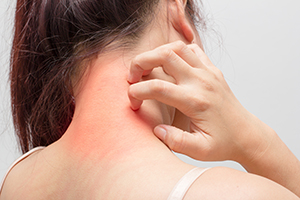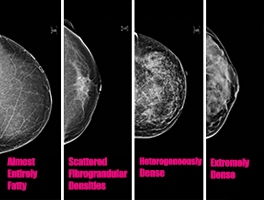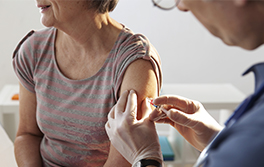
Sleeveless tops, shorts
and
swimsuits are sure signs summer is in full swing. Yet, if your skin is itchy, dry and red, skin-baring fashion is no fun. Keep common skin conditions under control.
Acne
Acne, opens new tab, the red bumps that plague most females from puberty, opens new tab to menopause, opens new tab, is caused by bacteria-clogged pores. Pimples typically pop up on the face, chest, back
and
arms (always at the most inconvenient times). Triggered by hormones, stress
and
bacteria, most acne is (thankfully) temporary.
Fortunately, it’s easily treatable most of the time with nonprescription pimple-fighting methods such as:
- Gentle face cleansers. Gentle cleansing twice a day can help prevent a breakout, but it won’t clear up existing acne. Soap and water may dry out your face.
-
Acne-treating cleansers. These products typically contain salicylic acid or benzoyl peroxide. Whichever one you use, make it part of your regular beauty routine. Once you stop using them, they stop working. Be patient. It may take a few weeks before you see a difference.
- Salicylic acid, opens new tab. Putting acid anywhere on your body normally isn’t a great idea. However, salicylic acid fights whiteheads and blackheads like a boss.
- Benzoyl peroxide, opens new tab. Benzoyl peroxide attacks the bacteria that cause acne.
Sometimes, acne doesn’t get the message. You may need to bring in the professionals (aka prescription antibiotics, opens new tab). Prescription-strength acne fighters can be topical (used on the skin) or systemic (taken by mouth). They reduce inflammation and battle acne-causing bacteria. Common prescriptions medications include clindamycin, erythromycin, doxycycline
and
tetracycline.
Eczema
Dry, itchy, red skin on your elbows, hands and/or skin folds could be a sign of eczema (aka atopic dermatitis), opens new tab. It’s a chronic condition that usually first appears in childhood. While it does tend to get better with age, there’s no cure. Eczema is typically triggered when stress, weather changes, allergens and skin irritants, like soap, push your immune system into overdrive. Family history plays a part, too.
Eczema is temperamental, flaring up every so often. When it clears up, it may stay away for years. Medications that relieve itching and fight inflammation, like those listed below, can help eczema make an exit.
- Nonprescription hydrocortisone cream, opens new tab
- Over-the-counter allergy medicines (antihistamines, opens new tab)
- Prescription oral or cream corticosteroids, opens new tab
Depending on the severity and/or frequency of the flare-ups, your doctor might prescribe phototherapy (aka light therapy) to reduce itching and inflammation, increase vitamin D production and boost your skin’s bacteria-fighting systems.
Psoriasis
Psoriasis, opens new tab is the result of the immune system launching an attack against skin tissue, causing the skin cells to build up quickly and form itchy, dry patches. There are several different types of psoriasis. It’s common for someone to have more than one type. Like eczema, something triggers a
flare up
. Typical psoriasis triggers include infections, stress, smoking, skin injuries and excessive alcohol use.
Also like eczema, psoriasis comes and goes, and there’s no cure. Yet, it is manageable. Medications and/or therapies can relieve itching, minimize inflammation, exfoliate the skin, reduce scaling and slow the growth of new skin cells. Your treatment plan may include one or more of the following.
- Phototherapy (aka light therapy), opens new tab
- Prescription corticosteroid cream, opens new tab, and oral or injectable medications
- Salicylic acid, opens new tab
Each treatment option has benefits and side effects. Do your research, and talk with your primary care doctor, opens new tab if you don’t love the skin you’re in. Often, OTC medications and lifestyle changes can keep your skin in the clear. If your condition is more severe or doesn’t respond to treatment, consider consulting a dermatologist, opens new tab.
Related Articles

November 7, 2024
10000 Steps Good Enough
How many steps did you log today? It’s a popular question, and the gold standard answer is 10,000. Yet, depending on your health goals, you may need to pick up the pace.

June 1, 2019
5 Day Meal Prep
Who says eating healthy has to be difficult? One of our Registered Dietitians shows us how easy it can be to prep lunches for a busy week.

June 1, 2019
5 Foods With Health Benefits
Dark ChocolateBoost your mood and your memory (think antioxidants) by savoring dark chocolate. It may also help your heart health. Just 1 oz. is all it takes...

December 9, 2019
5 Free Indulgences
Are you ready for the hubbub of the holidays? The season’s festivities are always fun, but they can also wear you down. If your holiday spirit needs rechargi...

June 1, 2019
5 Minutes to a Happier You
Feeling stressed, angry or anxious? Head to the great outdoors. A new study has found that a five-minute walk can work wonders for your mood.The more natural...

July 27, 2022
5 Must Have Nutrients
Vitamins and minerals do a body good, but who has time to figure out which foods offer what benefits? This short list of five essential nutrients, opens new ...


